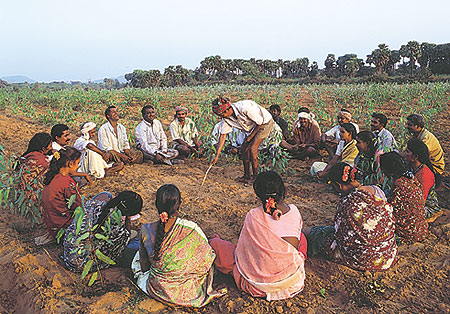|
|
|---|
ITC’s afforestation project is driven by the realisation that India’s poor forest cover – a meagre 11% of the geographical area of the country against a desirable 33% – has serious implications for the rural poor. Forests and common property resources constitute as much as 20% or more of the total income source of such households. ITC has effectively leveraged its need for wood fibre to provide significant opportunities to economically backward wasteland owners. The main plank of ITC’s forestry projects is the building of grassroots capacities to initiate a virtuous cycle of sustainable development. In a single year - 2002 - ITC’s afforestation programme has resulted in the planting of 20 million saplings. So far, 35 million saplings have been planted over 16,000 hectares, generating employment for 160,000 people. During the next 10 years, 600 million saplings will be planted over 100,000 hectares of private wastelands, benefiting 1.2 million people. ITC, working with select NGOs, identifies poor tribals with wastelands and organises them into self-supporting forest user groups. The user group leaders are trained by ITC to follow best silvicultural practices to grow high quality timber as a viable cash crop, and other local species that meet domestic, fodder, fuel and nutrition requirements. ITC provides a comprehensive package of support and extension services to farmers – loans, land development, planting of saplings, plantation |
|
maintenance, marketing and funds
management. Helping the farmer produce a quality that attracts the best price. After the
first harvest, the farmer returns the loan to his forest resource user group, in the
process, creating a village development fund large enough to sponsor aspiring timber
growers. Or meet other village development needs. Making sustainability a reality.
ITC also makes available high-yielding, disease-resistant clonal planting stock developed through biotechnology-based research at its Bhadrachalam unit. The commercial viability of these clones is evident from the fact that farmers have brought 16,000 hectares under such plantations. Another 8,000 hectares have been planted by the forest departments of Andhra Pradesh, Tamil Nadu, Karnataka, Maharashtra and West Bengal. |
|
||||
 |
|||||||